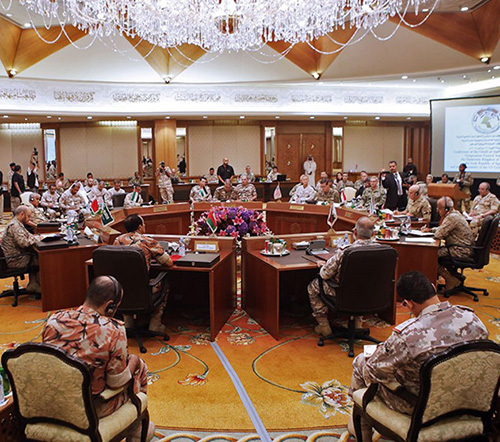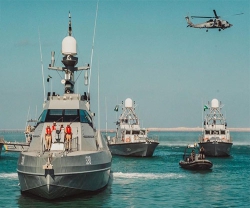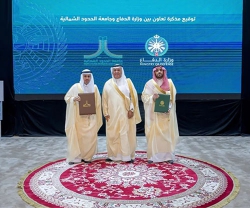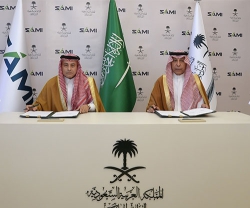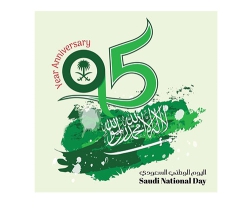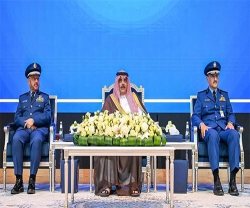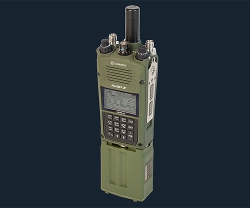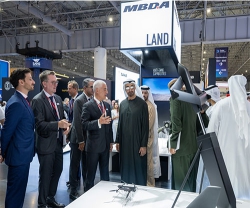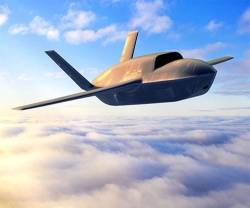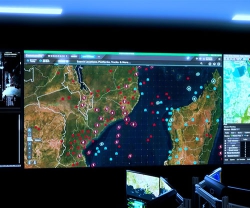Major General Mattar bin Salim al-Balushi, Commander of the Royal Army of Oman (RAO) left Muscat Tuesday heading to the Kingdom of Saudi Arabia (KSA) to attend the 18th meeting of the GCC Land Forces Commanders, held in Riyadh from 5-7 March 2019.
In December 2018, Lt General Eid Awwad Al Shulaiwi was appointed as the new Military Commander to the GCC Military Command in King Khalid Military City in Hafar Al Batan, Saudi Arabia. He was the former Commander of the Saudi Arabian Army, also known as the Saudi Royal Land Forces.
The joint military command was announced in 1984 as one several areas of co-operation for the GCC (Saudi Arabia, UAE, Kuwait, Oman, Qatar, and Bahrain). The GCC Military Command, in its current iteration, was established in 2013.
In September 2018, talks about the possibility of setting up an “Arab NATO” gained in intensity as Kuwait hosted a meeting between eight Gulf and Middle Eastern countries and the United States.
The Chiefs-of-Staff of GCC were joined by their counterparts in Egypt, Jordan and the Commander of the US Central Command.
The Kuwaiti military said the meeting aimed to strengthen and activate the joint-action mechanism among the countries gathered to undertake steps discussed in previous meetings.
The meeting discussed several issues, including security and regional affairs, combating terrorism and extremism, as well as related cases aimed at enhancing joint efforts to face various challenges to ensure security and stability in the region.
The meeting was held two days after the six GCC Chiefs-of-Staff discussed ways to enhance military cooperation and joint-defense to reach common concepts among GCC armed forces, a statement carried by Kuwait News Agency (KUNA) said.
“The most important topic of this meeting is joint military action, which aims to strengthen cooperation in order to face present and future challenges threatening the GCC countries,” Chief-of-Staff of the Kuwaiti Army Lt. General Mohammad Al Khudher was quoted as saying.
“We also look forward to exchanging experiences through intensive joint training between the armed forces in the GCC, which will boost their aptitudes,” he added.
The expanded meeting has prompted new talk about upgrading the military cooperation between the nine countries into a formal and organized infrastructure that would be similar to the North Atlantic Treaty Organization (NATO).
In July, reports said the administration of US President Donald Trump was “quietly pushing ahead with a bid to create a new security and political alliance with six Gulf Arab states, Egypt and Jordan, in part to counter Iran’s expansion in the region.”
The White House wants to see deeper cooperation between the countries on missile defense, military training, counter-terrorism and other issues such as strengthening regional economic and diplomatic ties, four Arab and US sources told Reuters.
The concept of the alliance, known as the Middle East Strategic Alliance (MESA), has been discussed between the US and its regional partners for several months, the White House reportedly said.
“MESA will serve as a bulwark against Iranian aggression, terrorism, extremism, and will bring stability to the Middle East,” a spokesperson for the White House’s National Security Council told Reuters.

